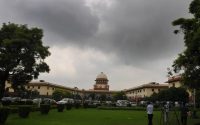$100 Website Offer
Get your personal website + domain for just $100.
Limited Time Offer!
Claim Your Website NowBan sale of liquor on case-by-case basis, Bombay high court tells Maharashtra government
Source:- hindustantimes.com
In the absence of a clear notification classifying highways in Maharashtra, the state government cannot pass a blanket order to close down liquor shops and bars along any or all central roads, the Bombay high court held on Monday.
A bench of justice Shantanu Kemkar and justice MS Sonak directed the secretary of the public works department (roads) and the commissioner, state excise department, to consider the applications of affected establishments on a “case-to-case basis” to confirm whether or not it fell within the 500m prohibited area along a state or national highway.
The bench directed the authorities to decide on and pass “reasonable orders” for each application made by restaurants, clubs, liquor shops, etc. affected by the ban by July 5 this year.
The court was hearing pleas filed by liquor vendors and restaurant owners, terming the state’s implementation of the ban “arbitrary”.
The petitioners had challenged a notice issued by the state excise department in May this year, asking them to shut shop. They had argued that besides banning sale of liquor along highways, the state, through the notice, had also asked such establishments to shut shop that were located within 500m of ‘state roads,’ or ‘mainways’, which are merely important roads running along the state.
They said there are about 250-300 such roads termed as mainways in the state’s road development plan and that these can’t be equated with state highways since they are not notified as the same.
On the last hearing, HC had asked the state to produce its notification classifying highways under section 3 of the Maharashtra Highways Act.
On Monday, however, the state submitted it couldn’t find the notification and it wasn’t even “necessary” to get into the classification as the ban had been implemented keeping in the “spirit of the SC order,” which was to prevent accidents. Thus, liquor sale had been banned along “all traffic heavy roads in the state,” the government said.
While the court dismissed the state’s argument, it refused to extend interim relief by way of a stay to all petitioners saying that while it “understood the petitioners’ argument of a breach of their Right to Livelihood, preventing accidents along the highways and thus, upholding the citizens’ Right to life was more important.”



